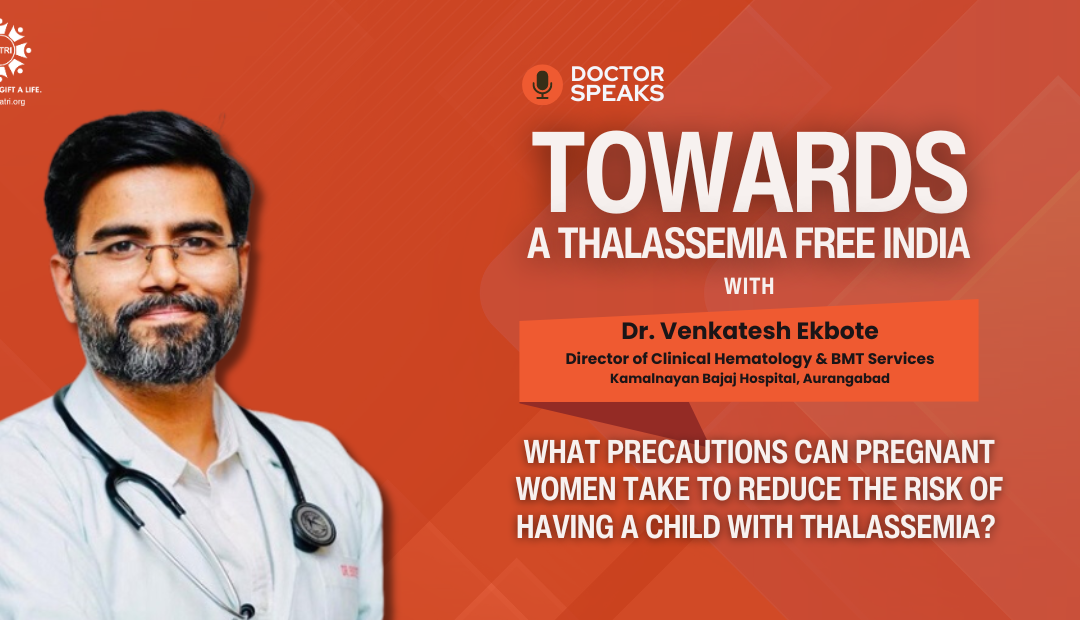As we commemorate Thalassemia Day and witness the launch of the government’s Thalassemia Free India project, it’s pivotal to delve into the proactive steps pregnant women can take to safeguard their children against this genetic disorder. Dr. Venkatesh Ekbote, Director of Clinical Hematology & BMT Services at Kamalnayan Bajaj Hospital in Aurangabad, sheds light on this critical aspect of prenatal care.
Thalassemia, a genetic disease, is preventable through heightened awareness and timely interventions. Dr. Ekbote underscores the significance of early detection and emphasizes the following precautions:
1. Hemoglobin Electrophoresis Test:
This simple blood test is essential for all individuals of marriageable age. Regardless of gender, this test enables the identification of carriers of abnormal haemoglobin, even if they show no symptoms.
2. Couples Testing:
Married couples should undergo the haemoglobin electrophoresis test together. Dr. Ekbote emphasizes that a positive result in one parent doesn’t automatically translate to thalassemia in offspring. Thalassemia manifests only if both parents are carriers. Hence, mutual testing is crucial to assess the risk accurately.
3. Early Intervention:
In cases where both parents are carriers, there’s a 25% chance of passing thalassemia to the child. However, early diagnosis allows for interventions before the 20th week of pregnancy. Timely medical guidance empowers couples to make informed decisions regarding family planning and prenatal care.
Dr. Ekbote underscores the pervasive need for greater awareness of thalassemia, even among educated individuals. Individuals can proactively mitigate the risk of thalassemia transmission to future generations by advocating for widespread testing and counselling.
Conclusion:
Thalassemia prevention begins with individual responsibility and extends to community-wide awareness. By prioritizing premarital and couples testing, coupled with early intervention, we can significantly reduce the incidence of thalassemia and strive towards a Thalassemia-Free India.
Let’s unite to spread awareness and ensure a healthier future for generations. Knowledge and proactive measures are key to preventing thalassemia and fostering a healthier society.
About DATRI:
DATRI Blood Stem Cell Donors Registry, a not-for-profit organisation, has facilitated more than 1207 Blood Stem Cell Donations to date. The journey began in the year 2009 to find unrelated matched donors for patients with leukaemia, Thalassemia or blood disorders whose life is dependent on an unrelated donor to survive. DATRI, India’s largest Blood Stem Cell Donors Registry, has more than 5,30,072 donors registered. DATRI is working towards creating a wide and diverse database of potential Blood Stem Cell Donors that can be accessed by any patient living anywhere in the world in need of a Blood Stem Cell Donation. Any healthy individual between the age of 18 years to 50 years can register as a blood stem cell donor with DATRI and potentially become a lifesaver when they’re found to be a match for a fatal blood disorder patient.
For more information about thalassemia click the links below to watch Dr. Venkatesh Ekbote’s interview

